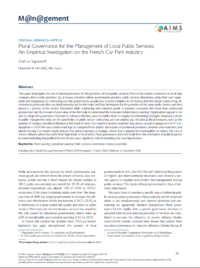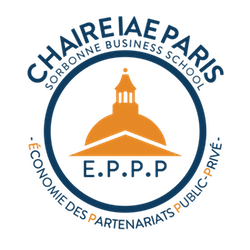Plural Governance for the Management of Local Public Services: An Empirical Investigation on the French Car Park Industry

December 2020 In: M@n@gement — Zoé Le Squeren
Abstract
This paper investigates the use of plural governance for the provision of local public services. Most of the studies conducted on local data compare direct public provision (i.e., in-house provision where governments produce public services themselves, using their own equipment and employees) to contracting out. But governments actually face a more complex set of choices than the simple make-or-buy dichotomy. In particular, cities can simultaneously opt for the ‘make’ and ‘buy’ alternatives for the provision of the same public service, and thus produce a portion of the service themselves while contracting with external (public or private) companies. We show how contractual perspectives and the resource-based view of the firm help to understand the rationales behind plural sourcing. Organizations appear to be able to adopt this governance structure to enhance efficiency since it enables them to employ benchmarking strategies. However, authors in public management insist on the specificities of public sector contracting, and our analysis also includes political measures, such as the number of changes of political affiliation at the head of cities. Our empirical analysis examines data about car park management by 97 municipalities in 2010. We use a multinomial logit to compare three distinct alternatives: total internal provision, complete externalization, and plural sourcing. Our results clearly indicate that plural sourcing is a strategic choice that is adopted by municipalities to reduce the cost of service delivery when they suffer from high levels of fiscal stress. Plural governance does not result from the alternation of political parties in power, indicating that political factors do not play a significant role in explaining that sourcing decision.
